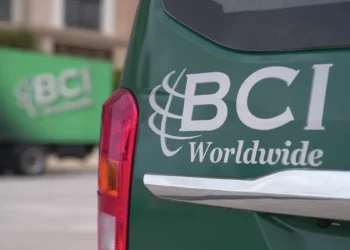After three years spent printing massive losses, Macau’s gaming concessionaires are finally profitable again, with the opening of borders in January sparking a remarkably rapid recovery. So just what can Macau expect in the months and years ahead?
 Almost three months since China shocked the world by declaring it would remove almost all remaining COVID-19 border restrictions from 8 January 2023, the scramble to make sense of Macau’s recovery trajectory remains as strong as ever.
Almost three months since China shocked the world by declaring it would remove almost all remaining COVID-19 border restrictions from 8 January 2023, the scramble to make sense of Macau’s recovery trajectory remains as strong as ever.
It’s fair enough to say that few saw China’s change of heart – and certainly the speed with which it arrived – coming. As recently as October, President Xi Jinping was doubling down on his strict COVID-19 policy, telling colleagues at the Communist Party Congress that the policy represented a “peoples’ war to stop the spread of the virus.”
But come December, public and economic pressures saw China – and by default Macau – begin rolling back mandatory quarantine measures for infected locals before dumping most remaining quarantine and testing requirements for foreign arrivals from early January.
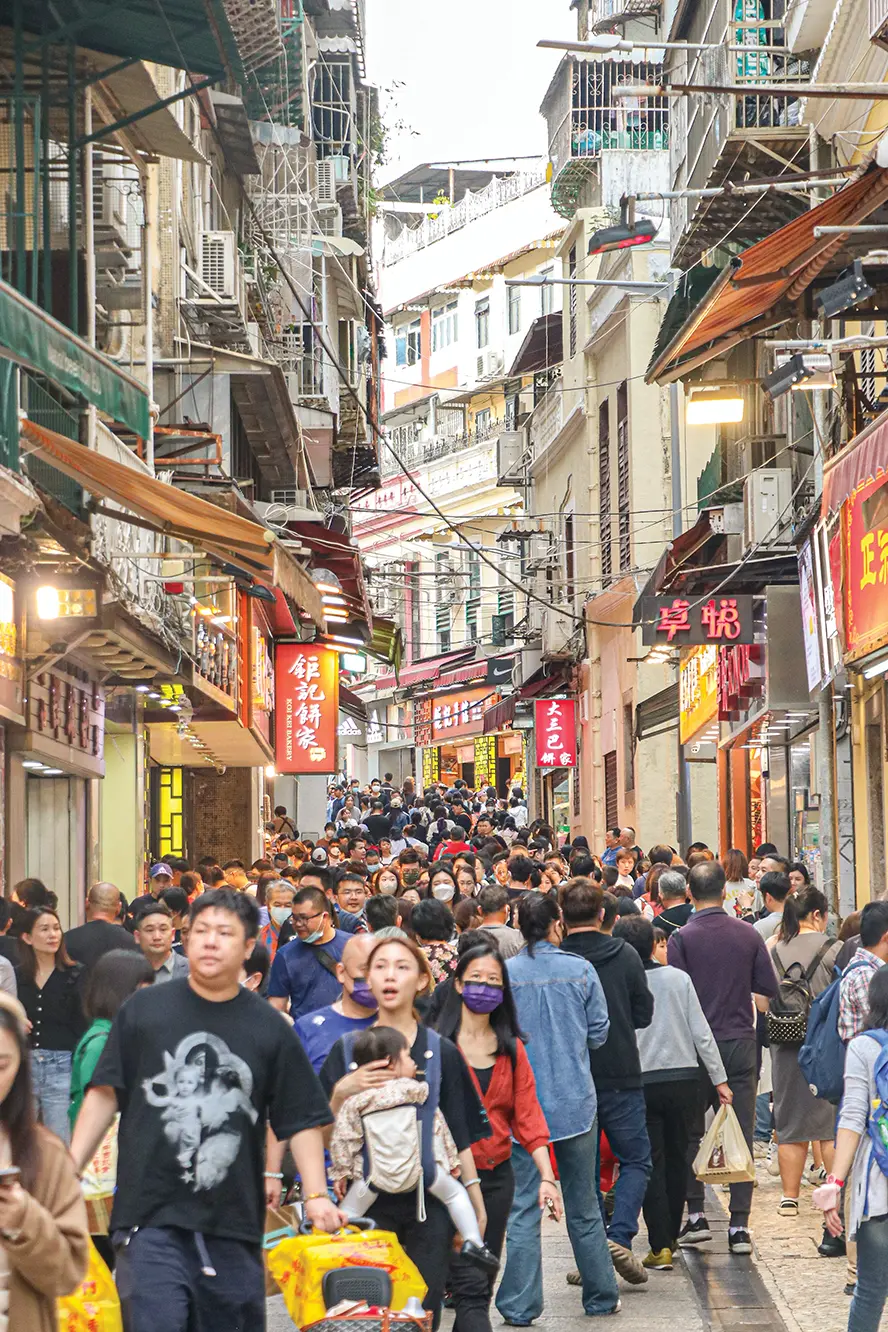 For Macau’s long-suffering gaming and tourism industries, the results were almost immediate. Having welcomed just 5.7 million visitors in 2022 at an average of around 15,600 per day, Macau saw its highest single-day visitor tally in three years on 14 January as 55,845 visitors poured in, rising to 90,391 during Chinese New Year on 24 January. The seven-day CNY “Golden Week” holiday period ultimately attracted 451,047 visitor arrivals at an average of 64,435 per day, and similar numbers have persisted ever since.
For Macau’s long-suffering gaming and tourism industries, the results were almost immediate. Having welcomed just 5.7 million visitors in 2022 at an average of around 15,600 per day, Macau saw its highest single-day visitor tally in three years on 14 January as 55,845 visitors poured in, rising to 90,391 during Chinese New Year on 24 January. The seven-day CNY “Golden Week” holiday period ultimately attracted 451,047 visitor arrivals at an average of 64,435 per day, and similar numbers have persisted ever since.
Gaming revenues were similarly quick to rebound, buoyed by casino floors that were filled with customers for the first time since early 2020. According to figures from the Gaming Inspection and Coordination Bureau (DICJ), January’s GGR figure of MOP$11.58 billion (US$1.43 billion) was 82.5% higher than January 2022 and 233% higher than December, when GGR reached just MOP$3.48 billion (US$431 million).
In early March, Wynn Macau Ltd revealed in a filing that its mass table drop had recovered to 82% of corresponding 2019 levels during the four-week period immediately after CNY, while direct VIP turnover was 20% higher than the same period in 2019.
This, it added, had the company estimating that operating revenues at its two Macau integrated resorts, Wynn Macau and Wynn Palace, had reached between US$391 million and US$395 million in January and February, up 75% year-on-year, while Adjusted EBITDA for the same period was estimated at between US$94 million to US$98 million, up from just US$4.5 million during the same period last year.
“Compared to where we were sitting in November and December, we could never have imagined it would be this good, this fast [in Macau],” says Alidad Tash, a former executive at Sands China and Melco Resorts and now Managing Director of consultancy 2NT8 Ltd.
 “We all knew it was going to happen eventually, but we thought it would be six months or 12 months from now. Nobody knew that by February or March it would be back to where it is today.”
“We all knew it was going to happen eventually, but we thought it would be six months or 12 months from now. Nobody knew that by February or March it would be back to where it is today.”
Even now, the speed of Macau’s recovery continues to surprise. On 1 March, the DICJ published its GGR figures for the month of February with revenues of MOP$10.32 billion (US$1.28 billion) comfortably exceeding streetside estimates of MOP$9.5 billion.
The result has been constant revision, always upwards, by industry analysts of their short-term Macau forecasts.
In a late February note, Morgan Stanley analysts Praveen Choudhary, Gareth Leung and Stephen Grambling lifted their Macau GGR estimates for 2023 by 42% to US$22 billion – more than four times the amount earned in 2022 and representing recovery to almost two-thirds of 2019 levels. They also raised their EBITDA estimates by 70% to US$5.8 billion, citing better product mix and higher margins given the industry’s move away from junket VIP following China’s crackdown on the junket industry – highlighted by the recent trials of former Suncity Group CEO Alvin Chau and Tak Chun Group’s Levo Chan.
While 2023 EBITDA estimates still lag the US$9.3 billion in Macau-wide profits earned in 2019, Morgan Stanley has 2024 EBITDA pegged at US$9.6 billion, explaining that “revenue/profit for Macau companies came in ahead of our expectations in the first two months of the year.
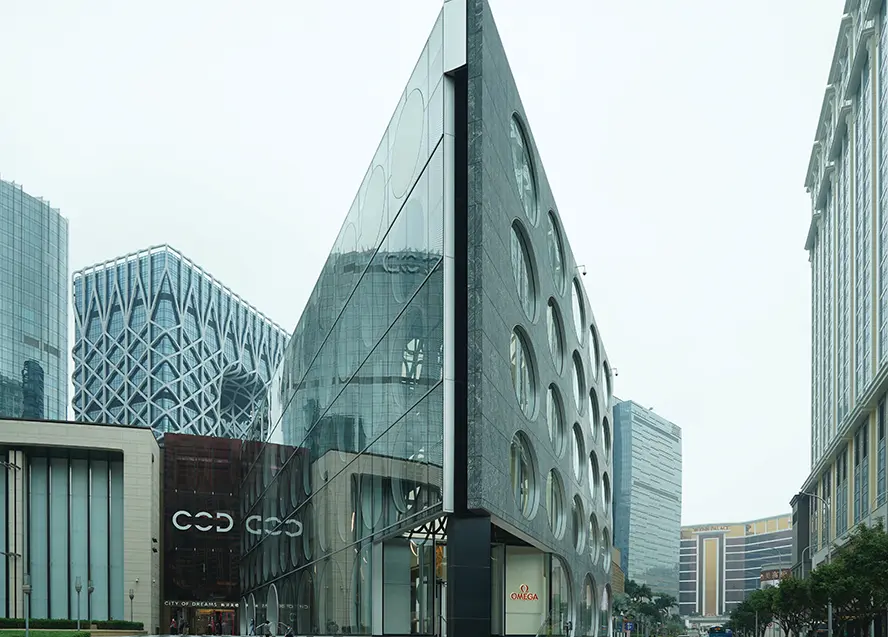 “However, we also find comfort in the sustainability of premium mass in the absence of junket business, which is important to achieve the pre-COVID level of EBITDA.”
“However, we also find comfort in the sustainability of premium mass in the absence of junket business, which is important to achieve the pre-COVID level of EBITDA.”
JP Morgan’s DS Kim began the year by upgrading his Macau forecasts the day after its 8 January reopening, noting his prediction that Q1 mass market GGR would recover to 35% of 1Q19 levels was likely “a bit too conservative”.
That certainly seems true, with most industry experts now tipping mass GGR to reach around 65% of 1Q19 levels. In March, Kim again revised his Macau estimates to reflect GGR recovery to 50% of 2019 levels this year, climbing to 70% in 2024, with mass GGR to reach 90% of 2019 levels by the December 2023 quarter.
Industry wide EBITDA would equal pre-COVID EBITDA numbers by 2024 and exceed them in 2025, Kim added, also citing better gaming mix and lower operating costs.
Adds Tash, “EBITDA-wise I think the [gaming] companies are going to be at 65% of what they used to do, of the US$9.5 billion they did in 2019, and they will easily do that, which will mean a healthy US$6 billion or US$6.5 billion this year.
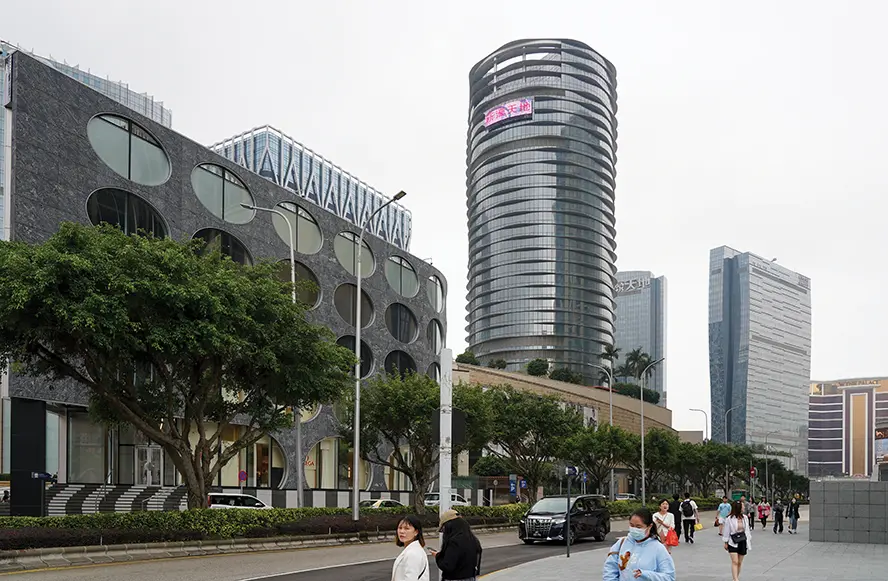 “My prediction is that within two or three years we will return to the 2019 EBITDA level of US$9.5 billion, easily. By the end of 2025 or 2026 we will hit that target simply because there is so much more capacity to make up for the loss of the junkets. Now, in terms of GGR it will take until the end of the decade [to reach 2019 levels] if we ever reach that number (US$36.5 billion] again, but either way it’s going to take quite some time. It’s a big hole to fill, that loss of junkets.”
“My prediction is that within two or three years we will return to the 2019 EBITDA level of US$9.5 billion, easily. By the end of 2025 or 2026 we will hit that target simply because there is so much more capacity to make up for the loss of the junkets. Now, in terms of GGR it will take until the end of the decade [to reach 2019 levels] if we ever reach that number (US$36.5 billion] again, but either way it’s going to take quite some time. It’s a big hole to fill, that loss of junkets.”
Reopening aside, there are other reasons for Macau’s faster than anticipated recovery – most notably a substantial increase in high-end hotel room capacity. According to Morgan Stanley, there were 26,313 hotel rooms in Macau’s integrated resorts in 2019, but that number is on the rise and by next year will have increased by 16% to 30,497. Including all hotels in the city, the number of rooms will have risen from 37,367 in 4Q19 to an estimated 41,659 by 4Q23.
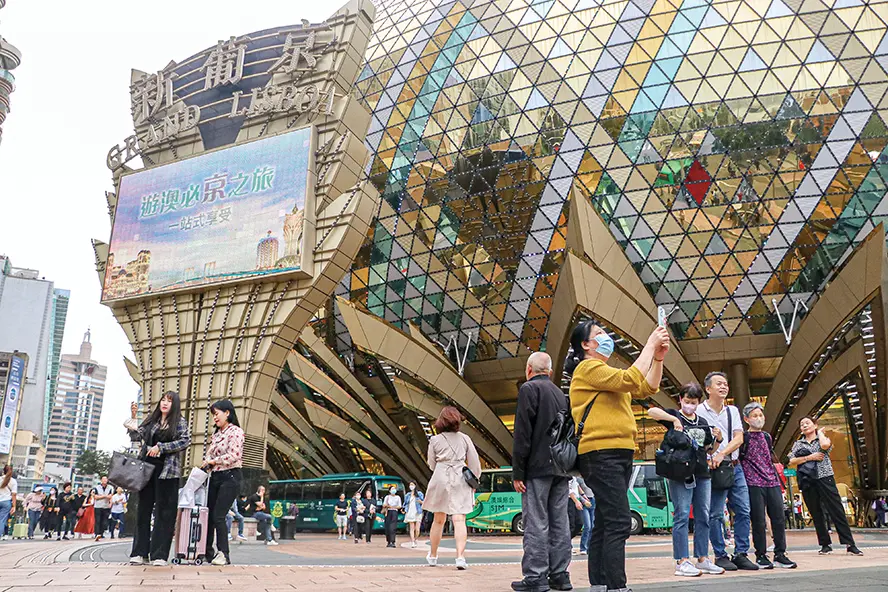
Among the notable additions are almost 2,000 rooms at SJM’s Cotai IR Grand Lisboa Palace – which held a soft opening in 2021 and plans a Grand Opening of remaining facilities later this year. Galaxy Macau Phase 2 will bring another 1,100 rooms to market, while Studio City Phase 2 will add 900 rooms across two hotel brands.
Sands China already brought 660 new premium suites online during the pandemic, including 370 suites at Londoner Court – part of its US$2 billion transformation of Sands Cotai Central into The Londoner Macao – and 290 suites at Four Seasons. On the gaming side, operators have brushed aside concerns over a reduction in Macau’s overall table allocation, which has seen the total number of gaming tables in the market fall from 6,739 at end-2019 to 6,000 in 2023. This was a core criterion in the government’s revised Gaming Law, which became effective on 1 January 2023 and saw only two operators, MGM China and Sands China, granted more tables than they held previously (Galaxy, Melco, SJM and Wynn all have less).
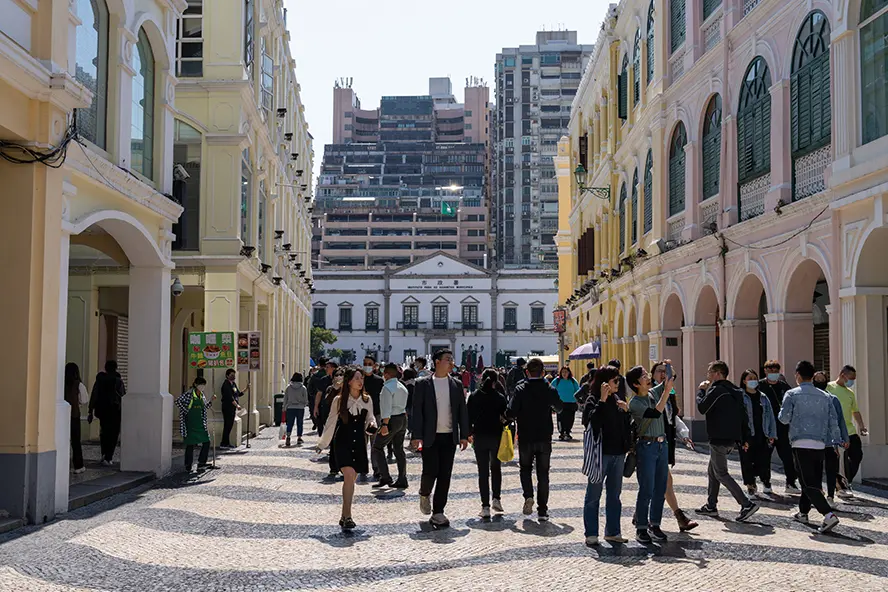 Nevertheless, Melco Resorts Chairman and CEO Lawrence Ho noted during the company’s recent 4Q22 earnings call that the allocation isn’t like for like. Despite seeing its allocation fall from 905 tables at end-2019 to 750 in 2023, Ho said this was “exactly the number of tables we requested according to our investment proposal … so in our minds we didn’t lose tables.
Nevertheless, Melco Resorts Chairman and CEO Lawrence Ho noted during the company’s recent 4Q22 earnings call that the allocation isn’t like for like. Despite seeing its allocation fall from 905 tables at end-2019 to 750 in 2023, Ho said this was “exactly the number of tables we requested according to our investment proposal … so in our minds we didn’t lose tables.
“Before the new concession, we had 900 tables but 300 to 400 of those tables were given to junkets. And given that the junket market is no longer there, we didn’t feel it necessary to have all those tables. Between City of Dreams, Studio City and Altira, it would be really hard to jam-pack 900 mass tables onto the floor. We feel very good about the number of tables we have.”
 The decline of the junket industry is significant, and while replacing the sheer revenue numbers they brought in is nigh on impossible – certainly in the short-term at least – the move by operators towards a premium mass- and direct VIP-focused model provides an avenue toward far greater profitability. This is why analysts have spent the past few months espousing Macau’s “better gaming mix”: under the junket model, operators typically paid their junket partners a commission of 1.25% on rolling which, against the theoretical win rate of 2.85% on baccarat, means the junkets were taking a chunky 43.9% slice of all GGR generated in their rooms!
The decline of the junket industry is significant, and while replacing the sheer revenue numbers they brought in is nigh on impossible – certainly in the short-term at least – the move by operators towards a premium mass- and direct VIP-focused model provides an avenue toward far greater profitability. This is why analysts have spent the past few months espousing Macau’s “better gaming mix”: under the junket model, operators typically paid their junket partners a commission of 1.25% on rolling which, against the theoretical win rate of 2.85% on baccarat, means the junkets were taking a chunky 43.9% slice of all GGR generated in their rooms!
Still, Macau’s recovery may not be as rapid as it could be. The Director of the Macao Government Tourism Office (MGTO), Maria Helena de Senna Fernandes, said in February that up to 3,000 hotel rooms were offline purely due to labor shortages – a result of lower staffing needs during the pandemic and the suddenness of reopening. Housekeeping, cleaners and room attendants are among the positions operators are still struggling to fill – a problem that will only be exacerbated as new properties such as Galaxy Macau Phase 2 and Studio City Phase 2 come online. Both companies have stated a need to hire at least 1,000 new employees for those projects.
 “They are burdened with the lack of blue cards,” says Tash.
“They are burdened with the lack of blue cards,” says Tash.
“The spectacular occupancy in hotels during CNY (the MGTO said occupancy reached 85.7%) was not as high as it could have gone, because they simply did not have enough labor to turn the rooms over. The problem now is that the government is burdened with the task of suddenly bringing back in so many maids and room attendants that were cut because they were not needed and were all foreigners.
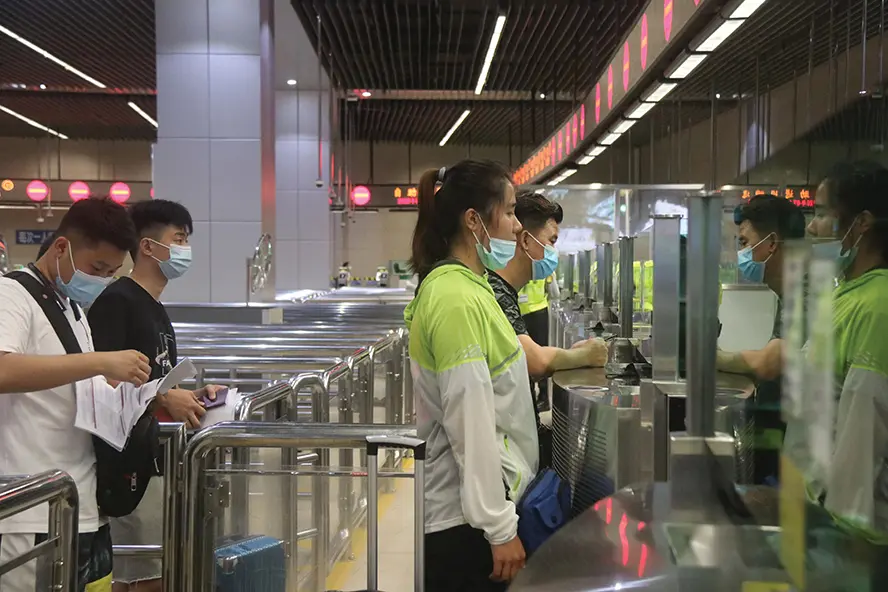 “It is going to be a lot of processing of blue cards just to be able to ramp up. The other issue is many of the senior management expats who left are not coming back anytime soon, and we’re not sure the government is going to let them anyway, so this is the first test of those people who were once more junior and are now filling those senior positions.”
“It is going to be a lot of processing of blue cards just to be able to ramp up. The other issue is many of the senior management expats who left are not coming back anytime soon, and we’re not sure the government is going to let them anyway, so this is the first test of those people who were once more junior and are now filling those senior positions.”
Also slowing a full recovery is the pace at which transport options are returning. Prior to the pandemic, ferry services between Hong Kong and Macau ran 24/7 with departures at least every 30 minutes. At time of writing, Cotai Water Jet – one of two companies running the Macau-Hong Kong route – was operating just nine round trips per day with the first not departing Hong Kong until 9.30am (and first return trip at 11am). Regular travelers describe these ferries as being “packed like sardines”.
Andy Wu, President of the Macau Travel Industry Council, told IAG that inbound ferry services were still running well below 50% of 2019 levels, with visitation further impacted by the fact that Hong Kong International Airport has not been fully restored either.
“International visitors to Macau rely on Hong Kong airport, but it has not fully recovered with capacity, and manpower is still insufficient,” Wu said.
Likewise, international flights to Macau in March reached only around 10% of those in 2019, while flights from mainland China were sitting at about 50%. Flights from Taiwan, which numbered five to six per day pre-COVID, have yet to progress beyond a single daily flight.
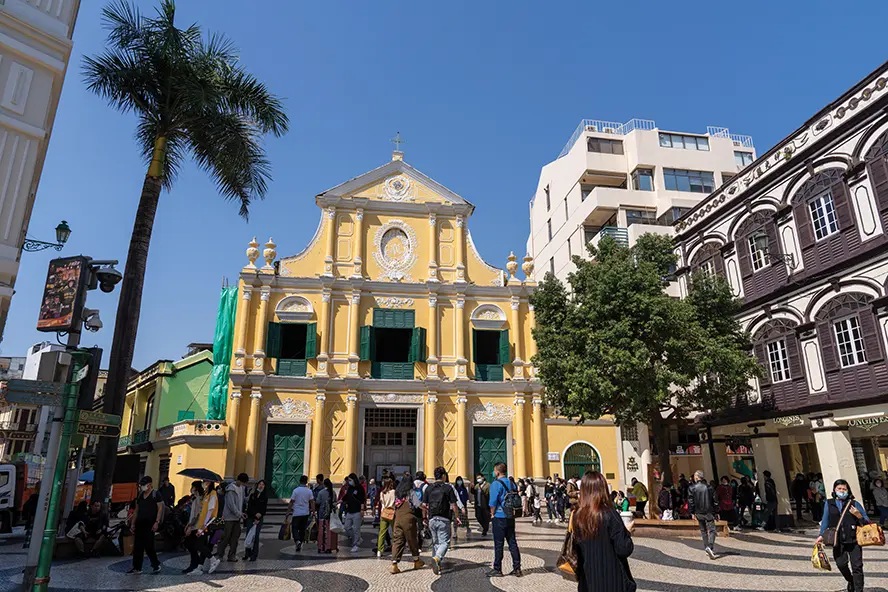 On a positive note, Wu believes visitation to Macau can reach 30 million in 2024 – around 75% of the 39.4 million who entered in 2019.
On a positive note, Wu believes visitation to Macau can reach 30 million in 2024 – around 75% of the 39.4 million who entered in 2019.
“The spending power of 30 million visitors in 2024 will be more than the 2019 level, and the length of stay of visitors is now longer than before, judging from the post-opening situation,” Wu said.
That, analysts agree, will propel Macau’s recovery. And with industry-wide mass GGR recovering to 90% of pre-COVID levels by the end of the year, EBITDA is tipped to reach 100% in 2024 and 110% in 2025 according to JP Morgan’s DS Kim and Mufan Shi.
“We reiterate our view that headline GGR is no longer an important metric to follow, given vastly different product mix and profit profile,” wrote Kim and Shi, noting that their EBITDA forecast comes without any profit contribution from VIP. “This puts us well ahead of consensus by 10%+, but we feel the risk to our numbers is actually on the upside given a possibility of direct VIP recovery and what we view as under-appreciated potential in non-gaming.”
A new Macau no doubt, but also a new sense of optimism for what’s to come.


























